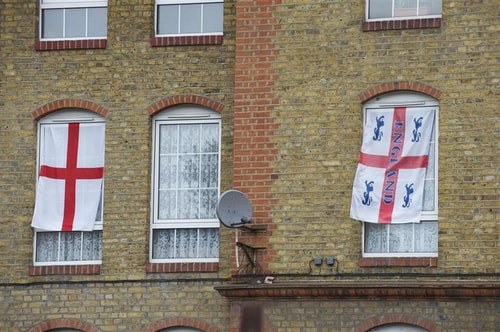Where I live, there is a significant increase in the number of flags that have been erected in our local area. There are not many other families of colour nearby and so it has often left me feeling like an unwelcome outsider in a place I once called home.
As we continue to see protests in the UK in front of hotels housing refugees and England and Union Jack flags being displayed in high streets and neighbourhoods, and the mass protests in central London this past weekend, I find myself, contemplating, who is my neighbour? And from this question, I am led to the story in the Bible of Jesus and the Samaritan and the demonstration of radical generosity and hospitality shown to a stranger.
Jesus tells the story of the Samaritan to an expert in the law. The expert wanted to test Jesus on His understanding of the Law of Moses so he asked what must I do to inherit eternal life? (Luke 10:25). Jesus’ initial response was the answer that the expert would have approved of because it is rooted in the Law of Moses. Jesus responded with a question, “What is written in the Law?” But more crucially Jesus then asked, “How do you interpret the law? In essence, Jesus was keen to know what hermeneutic lens the expert in law was using to interpret the Law of Moses. Was it love? Or was it motivated by an objective that justifies self? The expert answered well by citing the foundational text – the shema – which defines love for the One true God must be expressed by loving people created in the image of that God. This is the hermeneutic lens that should interpret the essence of the Law of Moses. But the expert in law was not interested in this hermeneutic of love, so he pressed further and asked, “who is my neighbour?“ This was a crucial question in that dialogue and one that is still relevant today, in a time when we are witnessing anti-immigrant protests, flag protests and mass protests. Jesus narrated a story that His listeners would have expected a person fulfilling the law of Moses to know better. But instead they failed to respond with hermeneutic love towards the traumatised human created in God’s image. Instead, it was the despised who recognised the traumatised human and responded with the hermeneutic of love in showing radical kindness and hospitality.
"This was a crucial question in that dialogue and one that is still relevant today, in a time when we are witnessing anti-immigrant protests, flag protests and mass protests."
The expert did not like Jesus’ story because when asked about who has shown love to the traumatised human, his response was “the one who showed mercy” (Luke 10.37). The expert in law could not mention the word Samaritan because he refused to recognise the humanity of the Samaritan. In the midst of anti-immigration protests and flag protests, the church desperately needs the hermeneutic of love in showing radical hospitality by coming alongside refugees and asylum seekers, but the church equally needs this hermeneutic in engaging those who are protesting physically through flags. I believe there may even people protesting in the pews in our churches that we must seek to understand and engage. This does not mean that we agree with the racial rhetoric that is the undertone of some of these protests, but it means we recognise the humanity of the protesters and seek to reach out to their humanity.
So, in answer to the question who is my neighbour? Our neighbours are everyone around us. The traumatised refugees who are being re-traumatised again through anti-immigration protests, but our neighbours are also those who are protesting outside and inside the church. We need to demonstrate the hermeneutic of love and look for ways to love our neighbour’s whoever they are.

Why ‘colourblindness’ doesn’t help the church
Jessie Tang challenges us to see the whole person – for the benefit of the whole church


